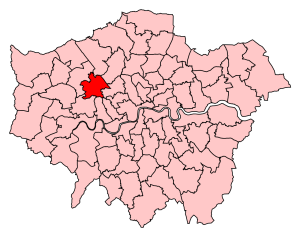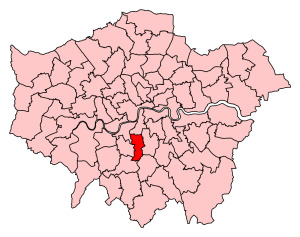On 15 March, the Health and Social Care Committee held an evidence session for their inquiry into the future of general practice.
MPs heard from Dr Kate Fallon, a GP Partner in Somerset, Dr Andrew Green, a retired GP, Dr Becks Fisher, Senior Policy Fellow at The Health Foundation, Prof Martin Marshall, RGCP Chair and Dr Kieran Sharrock BMA GPC (England) deputy chair.
The Chair of the Committee, Jeremy Hunt, began the session by stating that GPs had experienced ‘enormous strain’ in recent years, despite being considered the ‘beating heart of the NHS’. Mr Hunt noted that patients worried about getting appointments even though GPs are delivering more of them.
Dr Fallon told the Committee that her practice had been unable to recruit two vacant positions which had been open since July. As a result, she officially works six sessions a week, but must work an additional two to complete paperwork. This was exacerbated by the fact that although her practice did employ other health professionals, they could not take ‘full responsibility’ for decisions, meaning GPs had to be involved in many cases. Her practice’s recruitment issues were also hindering their ability to provide continuity of care. To ensure she was offering the best she could, Dr Fallon had resorted to working extra hours.
Strikingly, Dr Fallon admitted that the knowledge she could retire helped her keep going. Asked for the reasons of some of the issues she mentioned, Dr Fallon contended that the stressful nature of general practice was impairing recruitment, while patient contacts had arisen due to delays with hospital care. In the end however, what Dr Fallon simply needed was ‘more GPs’.
Dr Green observed that patients were ‘far more complex’ now than at the beginning of his career. He argued that 10-minute appointments were unsafe, and that not being able to provide the care they want encourages GPs to leave. On technology, Dr Green felt that remote consultations were not conducive to gaining ‘soft information’ from patients, that record sharing can be difficult and the computer can be a ‘barrier’ between the patient and doctor.
Dr Green also pointed out to the MPs that they should speak of capacity rather than access, and politicians should support GPs in the face of media criticism.
Prof Marshall began his evidence by declaring that general practice was in crisis and that ‘things have never been worse’. He estimated that on current projections 40,000 GPs would leave the profession in the next five years, more than would be recruited. The crux of the problem was that ‘demand is higher than supply’, and Prof Martin offered three solutions to this: a larger workforce; working differently; and changing demand. Expanding the workforce would be the most effective action, but it was also the hardest to deliver. Responding to a question about patient lists, the Professor noted that only 8% of practices use that system. Later in the session, he stated that the pressures on general practice were leading to an increase in referrals and ‘over-medicalisation’. Up to 40% of a GP’s work could be performed by other primary care staff. He also argued that QOF should be scrapped, as it was too bureaucratic and inflexible.
Dr Fisher stressed that general practice in areas of high deprivation is both under-doctored and under-funded. Part of the reason for this was that as a lot of funding is tied to the number of older people in an area, meaning affluent areas, where people live longer, receive more funding than deprived areas. She didn’t endorse mandating doctors to work in these deprived areas, thinking it was possible to encourage a more equitable distribution. To improve general practice, Dr Fisher believed that workload boundaries should be stronger and the public should be communicated with more honestly, so they know what is feasible for GPs.
In his evidence, Dr Sharrock suggested retention problems could be improved by uncoupling pension taxation from the amount of work GPs do, to stop the tendency of financial advisers advising GPs to retire early. Dr Sharrock also claimed that PCNs have worsened health inequalities by the rigidity of ARRS funding and its connection to the ability to recruit in the first place. Asked what the one technology he would want introduced in the NHS, Dr Sharrock immediately answered ‘electronic prescribing for hospitals’, in order to save time and reduce bureaucracy. Another suggested reform was that all secondary care professionals should spend at least some time working in general practice, which would both increase understanding but also the workforce. He also encouraged MPs to build a relationship with their LMCs.
MPs written questions
Two London MPs have submitted a number of questions to the Department of Health and Social Care about issues relating to general practice. Parliamentary questions require an answer by the department they are submitted to, including the provision that the answering department must provide any data they hold that has been requested.
Londonwide LMCs and area LMCs regularly meets with MPs, the Greater London Authority/Mayor’s Office and borough council representatives to raise issues affecting general practice.

Dawn Butler, Brent Central (Lab)
Funding (28.2.2022) Is the Secretary of State taking steps to increase core funding for general practice?
(8.3.2022) A: ‘A five-year framework for GP contract reform to implement The NHS Long Term Plan’, published in 2019, implements the commitments set out in the NHS Long Term Plan supported by an additional investment of £4.5 billion in primary medical and community care by 2023/24. In February 2020, we committed at least a further £1.5 billion in cash terms for general practice until 2023/24 for additional staff.
Workforce (28.2.2022) How frequently does the Government conduct regular analyses of workforce pressures and trends within healthcare, primary care and general practice; and are those analyses are published?
(7.3.2022) A: There are a number of regular workforce data publications on pressures and trends in healthcare, primary care and general practice. These include workforce size in hospitals, general practice, and primary care networks and data on turnover and sickness absence of hospital staff published by NHS Digital, including COVID-19 related sickness absence. The results of the annual National Health Service staff survey are published by NHS England.
In July 2021, the Department commissioned Health Education England to review long term strategic trends for the health workforce and regulated professionals in the social care workforce. In addition, the Department recently commissioned NHS England to develop a workforce strategy, which will set out its conclusions in due course.
(7/3) A: Local systems and CCGs are responsible for monitoring and responding to demands placed on GPs and their teams. The GP Contract states that each practice is required to provide primary medical services to meet the reasonable needs of their registered patients. General practices are independent businesses whose services are contracted by NHS commissioners. A practice may choose to provide extra-contractual services which are permitted under the terms of their contract.
Safety (28.2.2022) What mechanisms are in place to help ensure that safe levels of workload are deployed in general practice?
(7.3.2022) A: The GP Contract states that each practice is required to provide primary medical services to meet the reasonable needs of their registered patients. As self-employed contractors to the NHS, practices determine the appropriate workforce to match the workload, including the number and range of health professionals. There is no recommendation for the number of patients assigned to a general practitioner. This can be affected by various factors, including rurality and patient demographics. As part of the 2020/21 GP Contract, we have committed to a review of bureaucracy in general practice which is ongoing.
Patient Numbers (28.2.2022) Could the department make an estimate of the average, largest and smallest patient list size per full time employed GP working in general practice under in Brent, London and England for each year since 2010?
(7.3.2022) A: The information requested is not held centrally. Patient lists are held by practices rather than individual GPs. It is for practices to determine patient allocation appropriate to its workforce. Information on list size per GP and contract type is not collected.
119/111 services (28.2.2022) What recent discussions have taken place with professional bodies representing GPs and general practice staff on improving clinical knowledge and training for call handlers at the national 119 and 111 services?
(7.3.2022) A: No recent discussions have taken place.
Refugees (28.2.2022) What steps are being taked to support general practice to help meet the health needs of Afghan refugees?
(4.3.2022) A: In response to the relocation of people from Afghanistan, the Government has provided up to £600 per person to support immediate and primary healthcare needs while in temporary bridging hotels. NHS England and NHS Improvement’s expectations of local commissioners include permanent GP registration and health assessments to identify and manage immediate health and care requirements. Funding has been provided for additional capacity to mitigate the impact on access to general practice.
The initial health assessment should address any trauma and safeguarding concerns, mental health needs, women’s and children’s health, long-term conditions, vaccinations, areas of public health concern such as tuberculosis screening and ensure pathways to other services as required. Once in long term local authority accommodation, a further £2,600 per person is provided to the NHS, which will be administered by CCGs.
Patient Numbers (28.2.2022) What recent assessment has been made of the potential merits of reviewing how to determine a GPs patient list size as safe when assessing and developing general practice policy?
(3.3.2022) A: No recent assessment has been made. CCGs monitor practices’ compliance with contractual requirements and any risks to patient safety and service provision. If a practice considers that it cannot safely take on any more patients, it may close its patient list, provided this is approved by the CCG.
NHS England and NHS Improvement provide guidance for commissioners and practices on managing patient lists in the ‘Primary Medical Care Policy and Guidance Manual’. The Manual is published annually and an update is currently being prepared for publication.


Bell Ribeiro-Addy, Streatham (Lab)
Inequalities (4.3.2022) What assessment has been made of the impact of the covid-19 outbreak on health inequalities in Streatham, London and England?
(15.3.2022) A: The Office of Health Improvement and Disparities’ COVID-19 Health Inequalities Monitoring for England (CHIME) tool collates data relating the impacts of COVID-19 on health inequalities, such as confirmed COVID-19 cases, mortality rates, hospital admissions and vaccinations. The tool also provides estimates of inequality in life expectancy in England. However, data is not available at parliamentary constituency level.
Mortality rates from COVID-19 in the most deprived areas have been higher than in the least deprived areas during the pandemic. The CHIME tool shows that inequality in life expectancy for England and London increased for both males and females in 2020. Life expectancy data for 2021 is not yet available. In London and England, COVID-19 as a contributory cause of death had the largest impact on life expectancy in 2020.
Management (4.3.2022) What discussions has the Secretary of State had on the inclusion of general practice leadership as part of his Department’s review of NHS leadership?
(15.3.2022) A: Primary care and general practice is within scope of the Health and Social Care Leadership Review and we have been engaging with stakeholders from the sector. We have had regular engagement with General Sir Gordon Messenger and officials throughout the review. The Review is expected to conclude in spring 2022.
Safety (4.3.2022) Has the Department made an assessment of what ratio of patients to GPs is considered safe in the development of general practice policy?
(14.3.2022) A: No formal assessment has been made. There is no recommendation for how many patients should be allocated to a GP, as the demand each patient places on their GP can be affected by various factors, including rurality and patient demographics. GPs form part of a multidisciplinary team, therefore ensuring the appropriate skills are available in general practice can address workload pressures and deliver appropriate patient care.
Safety (8.3.2022) What mechanisms are in place to ensure that ratios of patients to GPs in general practices are maintained at safe levels?
(14.3.2022) A: Under the GP Contract each practice is required to provide primary medical services to meet the reasonable needs of their registered patients. As self-employed contractors to the NHS, it is for GP practices to determine the appropriate workforce, including the number and range of health professionals necessary to respond to the needs of their patients. Ensuring the correct mix of skills available in general practice addresses workload pressures, as well as in delivering appropriate patient care.
Covid-19 Vaccination (4.3.2022) How many people have received covid-19 vaccinations at walk-in and pop-up clinics in London; of those, how many did not have a NHS number and were not registered with a GP?
(10.3.2022) A: The information requested is not held centrally.
Workforce (4.3.2022) What steps are being taken to increase recruitment and retention of GPs in Streatham and London?
(10.3.2022) A: We are working with NHSE&I, Health Education England and the profession to increase the general practice workforce in England, including in London. We have increased the number of GP training places and in 2021/22, 4,000 doctors accepted a place on GP training – an increase from 2,671 in 2014.
The updated GP Contract Framework announced new retention schemes and continued support for existing schemes for the general practice workforce. These include the GP Retention Scheme, the International Induction Programme, the Return to Practice Programme, the Fellowship Programme, the New to Partnership Payment and Supporting Mentors Scheme.
South East London CCG is working with the Lambeth Together Training Hub to support the recruitment and retention of staff in GP practices. These include peer-to-peer support groups, protected learning time events and support for workforce planning to recruit additional roles such as mental health practitioners, physician associates and social prescribers.
Contracts/Demand (4.3.2022) What is the definition of meeting reasonable needs in the GMS contract, and what steps are the Department taking in the event that the level of demand on general practice is deemed to be unreasonable?
(10.3.2022) A: Under the GP Contract, contractors must provide essential services. The Contract defines essential services as those services which practices must provide to meet the ‘reasonable needs’ of their registered and temporary patients in core hours. This includes providing consultations, referrals and ongoing treatment and care as necessary and appropriate. This places broad responsibilities on practices while allowing a level of clinical discretion to determine how to meet patients’ reasonable needs. CCGs are also responsible for monitoring and responding to demands placed on general practitioners and their teams.
Workforce (4.3.2022) Will the Department make an assessment of the impact of pressures resulting from the covid-19 outbreak on GP staff retention in Streatham, London and England?
(10.3.2022) A: We have made £520 million available to improve access and expand general practice capacity during the pandemic, including in London. We are continuing to assess the impact of the pandemic on general practice staff retention and working with NHS England and NHS Improvement and the profession to support general practitioners and improve their working environment.
Patient Numbers (4.3.2022) What research and analysis of patient list sizes per FTE GP working in general practice has the Department commissioned and considered in determining safe operating levels for patients accessing in general practice services?
(10.3.2022) A: The information requested on patient list size is not held centrally.
As self-employed contractors, it is for GP practices to determine the appropriate workforce, including the number and range of health professionals necessary to respond to the needs of their patients. There is no recommendation for how many patients should be assigned to a GP. This can be affected by various factors, including rurality and patient demographics. No further analysis is currently being undertaken.
(10.3.2022) A: While we have no plans to make a formal assessment, we have a zero-tolerance approach to abuse and harassment. We are investing in better security at general practitioner surgeries and working with the NHS to ensure primary care workers are supported.
The local CCG and the Lambeth Together Training Hub regularly engage with practices in Streatham and have recently provided dedicated training for primary care staff on dealing with these situations.
ARRS (4.3.2022) What was the level of underspend on general practice staff under ARRS in London and England?
(9.3.2022) A: ARRS is designed to be used for reimbursing the salaries and on-costs of roles included in the Scheme. As private contractors, GPs plan their recruitment and workforce decisions.
Tell us what you think about our website by completing our quick survey here.


